We’ve seen a few Russian cars appear on our desks here at Barn Finds over the past decade, but it is rare to see more than one car come from the same seller. However, the owner of this collection offers no less than six classics from which potential buyers could choose. All of these vehicles have a couple of important characteristics in common. First, they all feature low odometer readings, while they are all very affordable. These vehicles may not appeal to everyone, but it has become apparent that we have a devoted group of readers with a soft spot for cars from the former Soviet Union. If you count yourself in that group, you will find this collection located in Portland, Oregon, and listed for sale here on eBay. Prices vary on each vehicle, so let’s take a look and see what the seller has to offer.
The first cab off the rank is this 1988 Lada 2107. It presents nicely in Red, and our more astute readers will not be surprised to learn that is it is a Russian derivative of the Fiat 124. First introduced in 1970 as the Vaz-2101, the Soviet Industry Minister was quoted in the Financial Times at the launch as stating that the company had no intention of following the West’s trend of planned obsolescence. He envisaged the vehicle remaining in production for as long as ten years. It seems that he missed the mark slightly because these classics remained available in various forms until production ceased in 2012. The overall condition of this car is excellent. The original paint shines as nicely as any that you are likely to see on a Lada of this vintage, while the panels are straight. It appears to be rust-free, which is no great surprise. While it is based on the Fiat 124, Lada built their vehicles from heavier and better steel, making them less rust-prone and more robust to withstand the rigors of Russia’s rough road system. The exterior trim is as impressive as the panels and paint, while the glass is in good order.
Tilting the hood forward on this Lada reveals the 1,568cc four-cylinder engine that should be producing 77hp. In keeping with the robust theme, the power finds its way to the rear wheels through a five-speed manual transmission. The company offered a four-speed unit on lower-spec models, but there was no automatic transmission option. These classics are a long way from being muscle cars, but they were designed to be reliable transport for the masses within the Soviet Union. It appears that this vehicle is in sound mechanical health and has a genuine 20,000 kilometers (12,500 miles) showing on its odometer. These vehicles are notoriously long-lived, and many still ply Russian roads. That means that this one should have plenty of service left to offer its next owner.
The 2107 was the company’s luxury offering, but the term “luxury” is a relative term in different markets. While it brought an upgraded dash, upholstery, and front seats with headrests, the floors still wore rubber mats. Compare this with domestic luxury offerings from the era, and you begin to understand the vast gulf that existed between Western cars and those produced in the USSR. The interior of this Lada is as spotless as you might expect for a car with such a low odometer reading. Apart from a CD player, it is original and unmolested. The owner located this classic in Hungary, and it is probably one of the nicest examples you will see today. If you wish to park it in your garage, you will need to hand the owner $11,000.
If the 2107 is not to your liking, this 1989 Lada 2106 may appeal to you more. Introduced in 1976, the 2106 remained in production for an incredible three decades. Once again, this classic presents beautifully, although the alloy wheels are not original. Its engine bay is occupied by a 1,568cc four-cylinder engine backed by a four-speed manual transmission. Its interior features a rare splash of luxury, with the seats upholstered in leather. The owner located this gem in Germany, and it has a genuine 21,000 kilometers (13,050 miles) showing on its odometer. This one could be yours for $14,000.
While wandering around the Ukraine, the owner spotted this 1989 Volga Gaz 2410. Powered by a 2,445cc four-cylinder engine that produces 99hp, the vehicle also features a four-speed manual transmission. The owner says that it has 25,000 kilometers (15,500 miles) on the clock and is free from rust and body issues. He describes its condition as “like new,” and it can be yours for $17,000.
The owner also managed to find this 1988 Volga Gaz 2410 in Russia, and it is an absolute gem. Its mechanical configuration is the same as the car above, but it has a genuine 6,700 kilometers (4,160 miles) showing on its odometer. Once again, the wheels aren’t original, but the owner’s description that it is in as-new condition seems appropriate. When you look at its overall shape and consider the odometer reading, it is no surprise that it is the most expensive of the bunch at $23,000.
Returning to our Lada theme, we find another 2106. Once again, it is a rust-free survivor that presents beautifully. With 5,000 kilometers (3,100 miles) on the clock, it could be considered to be barely broken in. This is especially true when you think of those that remain on Russian roads today. It isn’t unusual to spot examples with more than 300,000 miles under their belts, suggesting that this 2106 has plenty of life left. It can be yours for $17,000.
The most modern offering in this collection is the 1991 Moskvitch 2141. These cars represented a quantum leap forward in drivetrain architecture, being the second Soviet passenger car offered with a front-wheel-drive configuration. It nearly became the first, but development delays meant that Lada beat Moskvich to the punch with their 2108 (aka Samara). In other respects, it represented an innovative vehicle because the 2141 was the first Russian passenger car developed with an eye on aerodynamic efficiency. It isn’t clear which engine we will find under the hood, but it features a five-speed manual transmission. The odometer shows 17,000 kilometers (10,500 miles), and the paint is original. The most modern vehicle in the group will set you back $15,000.
It would be easy to dismiss this collection of Russian classics as an amusing sideshow, but doing so would be an injustice. I admit that these aren’t the most desirable vehicles in today’s market, nor do they offer performance that would pin you back in your seat. The driving experience won’t be on the same level as a sports car and would be well below Western passenger cars from the era. However, all of these cars are in excellent condition for their age, and all feature exceptionally low odometer readings. Soviet manufacturers weren’t renowned for being on the cutting edge of automotive development, but they knew how to engineer a bulletproof vehicle. That is what the owner offers with this collection, and these classics should still be happily pottering along our roads in another forty years. That makes them worthy of a closer look.
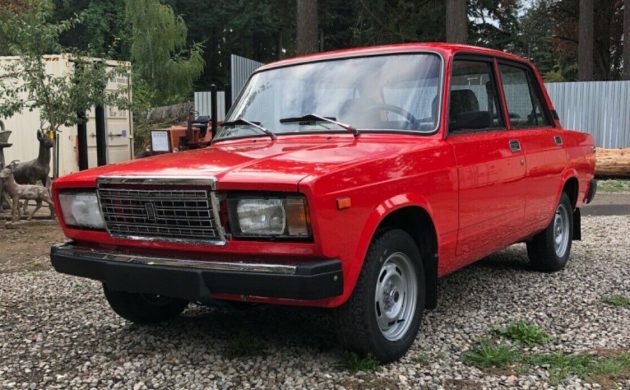
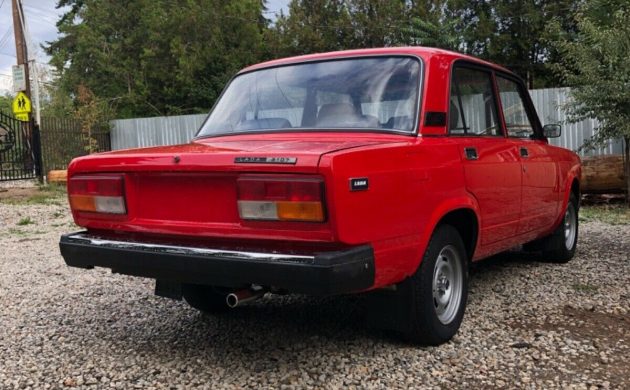
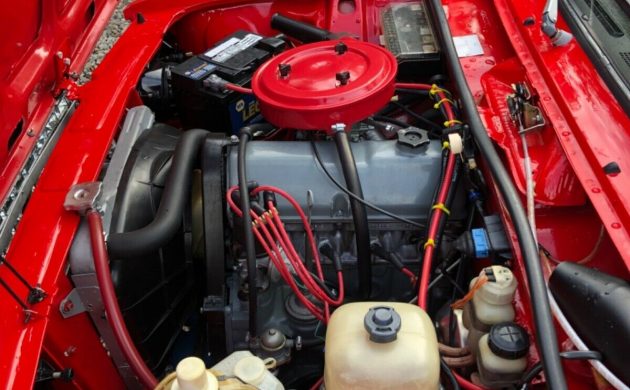
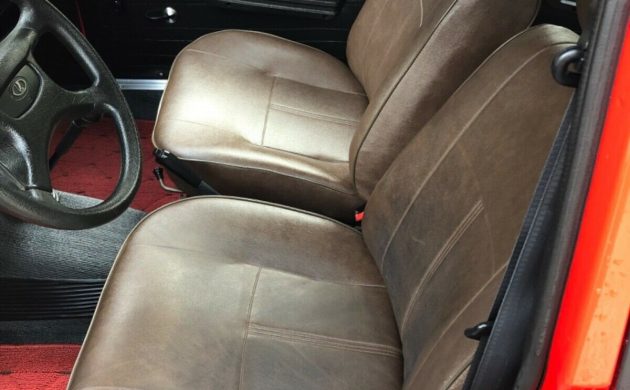

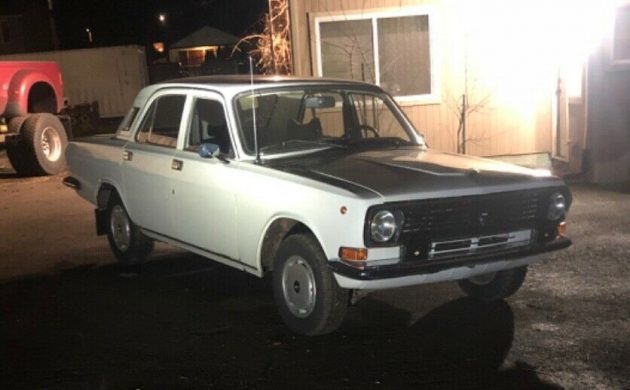
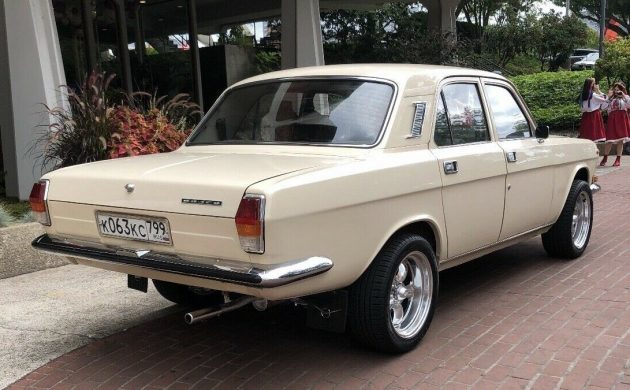
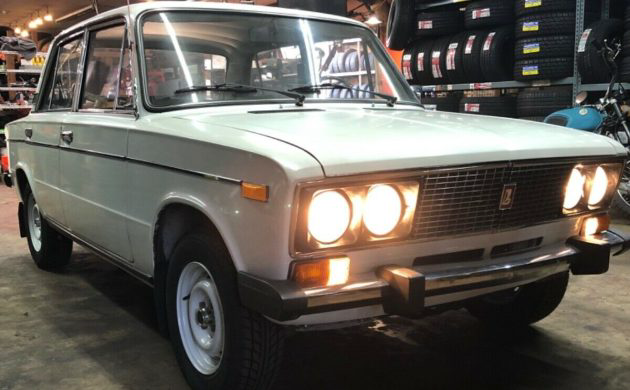
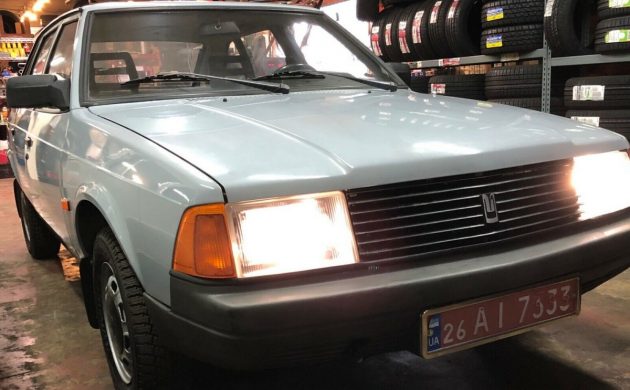
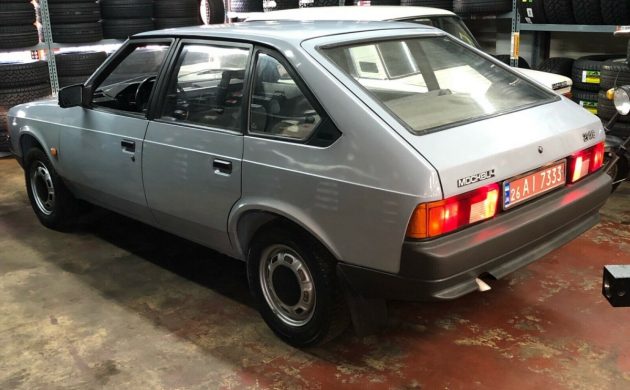




“Lada,better than a Yugo”.
I remember seeing a samara rally car. They used the little 4×4 on the ski hills up here. Electrical system gremlins plagued them.
Volga is close to RAL 1015 “Hellelfenbein”, aka German taxi beige. Straight out of an East Berlin taxi rank, apart from the wheels.
Summer of -81 I was working at my father’s cousin’s car dealership selling also Ladas. I was well used to old Fiats and assumed that the Ladas were to be similar. Not so. Where the Fiats feel light and eager, these are terribly agrarian cars. Everything feels heavy and the car fights your every move. Build quality was appalling. The hubcaps didn’t fit the rims and would fall off at the first bump. The carpeting looked like it was cut with chainsaws. Padding would stick out between the seams of the seat fabric. And at least 50% of the cars had some partial re-spray from the factory, usually in a shade that wasn’t fully the same as the rest of the car. And the buyers were poor, often retired and couldn’t afford anything better. We tried to convince them to just buy a used car instead but most wouldn’t listen. And the majority of these buyers didn’t even do a test drive. If they had they may have changed their minds? Just terrible cars!
I rode in one ONCE! I would agree. As a mechanic, we called them a Lada junk.
I believe these had the same crummy Russian steel that ruined Fiat’s reputation, just that it wasn’t rolled out as thinly. I was stuck in Jamaica for a couple of months in 1997. Ladas were still everywhere, but it seemed like at least three of them were parts cars for each one that could still move under its own power. At least three.
As i have written here a few time , i tend to race and not drive
So , these THINGS have never, ever been more than an obstacle on my way somewhere …
Can I have what that seller is smoking? Way over priced
Lada…the darling of horrifying/senseless/fatal crashes in Youtube videos!
Fantastic and Russian should never be used in the same sentence.
Huh interesting. Because the Antanov AN92 is pretty fantastic, The AKM, Mil MI-35… you might want to look into things Russian before you make a broad statement.
Also, the red scare died 31 years ago.
John – Yes, and somebody should tell the Ukrainians!
You know things are bad when Crazy Vaclav throws in the polotentse..
https://www.youtube.com/watch?v=1HPVQ4FpVlY
John May of TopGear and Grand Tour fame did his own series called “The Peoples Car” and tested an early and late model Lada. Not too kind to them. Never driven one myself but my former eastern block friends state pretty clearly what terrible cars the Russian auto industry made. One stated he spent his weekend fixing his Moskovich so he could drive it to work the next week, repeated every weekend. Overpriced junk anyway you slice it, zero value then or now IMHO.
Starts with a whack from a hammer just like in the movie Golden Eye
Here’s a transplanted American tuning a later-model Lada – a model which actually looks pretty good (IMO, for what it is) https://www.hagerty.com/media/maintenance-and-tech/lada-111-tuning-part-1/
I was looking to buy a Russian vehicle a couple years ago I was looking for a GAZ66 4 wd truck but because of the lack of any good parts source and with our present political climate that not likely to improve.
Great trucks cars, not so much!
Karl – (“NOT Carl!”), Take a look at ‘Bring A Trailer”.com under the trucks/specialty vehicles – they have a surprising variety of which I think you seek.
Actually, Karl – or anybody reading, check this list of Russian vehicles, and the insanely low prices, including the off-roaders –
https://www.thrillist.com/cars/5-crazy-russian-vehicles-we-wish-we-could-buy-here-cheap-atvs-not-for-sale-in-the-us. And, a special piece on the “LOAF” – https://www.autoweek.com/car-life/but-wait-theres-more/a1872181/yes-you-can-still-buy-brand-new-uaz-bukhanka-road-van/
I wonder if the seller will accept a personal Czech.
Perhaps a Grecian Urn.
I wouldn’t touch that with a 10′ Pole, or a 12′ Czech!
How do you make a lousy car (Fiat) worse? Get it from the Soviet block (ala Yugo)! No one sane wants one, let alone a collection of them!
LOOK! It’s a LADA! Lada S@#T! But, IMO, all cars have their good points – and I’ll bet that if you look on YouTube, some guys somewhere in Eastern Europe have got a tuner version that they have built as a “Bimmer Beater!”
I bought a Lada for 25 dollars. It had a blown engine and the oil was full of gasoline.
The fact was in Canada every car ran on 10W30 and Canadians just poured 10W30 into them.
I changed the oil, replaced it with 20W50 and drove it for 4 years. It ran fine when I just replaced it with something newer. Best heater in a car ever and I could fix it with 5 wrenches without having to jack it up.
The down side was that it was rough, crude, noisy, and had terrible window cranks.
But for a cheap, tough, simple and reliable car it was great. It demanded regular maintenance. But if you checked inder the hood a couple of times a month it was a great economical car.
Parts were cheap and plentiful at the tractor dealership. Hey my MG has a lot of Massey Ferguson parts in it and it is way cheaper sourcing them from the farm supply than MOSS – and I like MOSS.
Ladas were great cars if you could handle getting your hands dirty and doing basic maintenance.
Modern cars – drive them till a light comes on and pay some guy with a laptop 75 bucks an hour to get the light to go out.
Very good points – but $75? Try $100, and that’s the guy on the corner. BTW – how did the Russian steel bodies hold up in the Canadian winter, with the road salt and everything, and how did they handle in the snow? Europeans used to laugh at how much money Americans paid for Mercedes Benz cars back in the ’80’s, when they were used as taxis in Europe – probably still are. Finally, are their many Russian-built cars in Canada? Thanks!
I rode in one ONCE! I would agree. As a mechanic, we called them a Lada junk.
I drove on from one city I think it was Qingdao to Zibo in the pouring rain at night. I think I wouldn’t have gotten as wet if I had walked. The wipers took one swipe and then called it a day. The engine sounded like ti was wheezing it’s last breath. But, I did make it, which surprised the hell out of me. Having worked on Russian motorcycles, which have way better build quality, the biggest problem with the bikes is the metallurgy. Not sure about the cars, but I don’t think I’d take one if you gave it to me.
Why did all older Russian vehicles look like Packards and then like Fiats? Did the Ruskies buy the tooling from other manufacturers, or did they just steal them?
The Packard-like ones are kind-of a cross between a Volvo of that day and an American car – and the one above they are saying is standard Russian taxi looks similar to a Volvo (including the door handles) – maybe they just lifted the designs, or maybe they bought the old dies/parts from either die-makers, parts suppliers or the car companies themselves – but if you look at the link above about the transplanted American tuner-guy, he describes his later-model Russian car as “Peugeot meets Subaru” which seems true, but the outside looks pretty good, IMHO.
Steve,
Short basic answer, by someone who has owned a pre-war Packard Super 8 180 limo, and who has studied several ZIS-110 & 115 [armored] limousines in detail:
The US sold/lent 2 1942 Packard Super 8 180 limousines to the Soviet government. Stalin liked the cars so much he told the ZIS factory he wanted the new ZIS limo to look like the Packard, except in a few ways, including no sidemount tires, no running boards, & make the back of the car look more like the Cadillac limo. Also rake the windshield back another 15 degrees [my guess as to the new angle].
Since the ZIS 110 series of cars had a very limited production run of only about 2 dozen cars per year, It would have been very expensive to tool up to make all the small parts needed for the car, like the instruments, AM radio, heater system, exhaust manifolds, etc.
In searching under the dashboard of a ZIS years ago, I found the same King-Seeley instrument co part numbers as on Packard instruments. I found the Radios had the 2 small screw holes that on Packard Philco radios, held the Philco ID plate to the radio case. The engine intake manifold had “grinding marks” where the raised cast Packard numbers would have been. But wait, there’s more: Post-war Packards used vacuum windshield wiper motors. ZIS used electric wiper motors. The Packard manifolds had a vacuum port for the wipers. The ZIS manifolds had a plug in that location. The post-war Packards also had an option of a vacuum-electrical clutch, and if so equipped, they had a vacuum port on the intake manifold. If not equipped, the port had a plug screwed in place. The 3 ZIS 110 vehicles I saw had these same plugs on the manifold!
The larger parts like chassis and body pieces were certainly Soviet made, but many of the smaller parts appear to have been bought in small batches from various Packard parts sources world wide. I have no written evidence, but I’ve examined ZIS vehicles, and all I examined had genuine Packard spare parts installed from new.